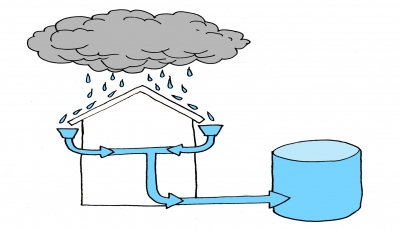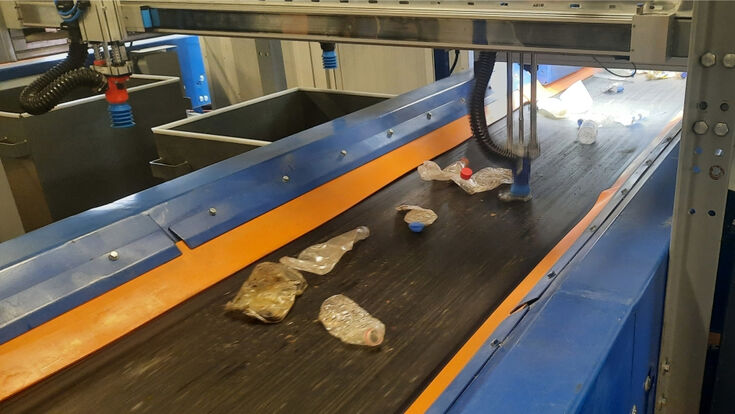Reclaim Waste Melbourne: Top Strategies to Efficient Liquid Waste Removal
Reclaim Waste Melbourne: Top Strategies to Efficient Liquid Waste Removal
Blog Article
Fostering Resource Performance and Environmental Defense With Liquid Waste Removal Programs
In the world of environmental stewardship, the management of fluid waste stands as an essential point where source performance and environmental security merge. Through a lens of positive interaction and strategic foresight, the landscape of liquid waste monitoring reveals a tapestry of obstacles and possibilities that bid us to discover the course towards a greener and even more sustainable future.
Relevance of Fluid Waste Elimination
The relevance of fluid waste elimination depends on its vital duty in protecting environmental wellness and protecting public wellness. Fluid waste, otherwise correctly taken care of, can present significant hazards to ecological communities, water resources, and human wellness. Via reliable elimination procedures, dangerous materials such as toxins, chemicals, and virus are avoided from infecting the setting and creating destructive results.
Proper liquid waste removal likewise aids in stopping the spread of conditions and lowering the capacity for groundwater contamination. By safely dealing with fluid waste, the risk of waterborne health problems and pollution-related health and wellness concerns is considerably decreased - Reclaim Waste. Furthermore, efficient removal techniques add to keeping the overall cleanliness and visual appeals of communities, consequently boosting the lifestyle for residents
Additionally, fluid waste removal plays an essential role in supporting sustainable advancement and making sure conformity with environmental policies. By adhering to correct waste monitoring sectors, procedures and services can reduce their environmental impact and demonstrate business responsibility. Eventually, purchasing robust fluid waste elimination programs is crucial for promoting ecological stewardship and fostering a healthier, much safer future for all.

Benefits of Efficient Disposal
Efficient disposal of liquid waste not just safeguards ecological wellness and public well-being but additionally generates countless benefits that prolong beyond prompt containment measures. Through procedures like reusing and power recovery, useful resources can be removed from liquid waste, promoting sustainability and reducing the stress on raw materials. On the whole, the advantages of effective fluid waste disposal are complex, including ecological protection, resource efficiency, and economic advantages.
Technologies for Waste Treatment
Utilizing sophisticated modern technologies for waste therapy plays an important role in guaranteeing the efficient administration and secure disposal of fluid waste. Among the key modern technologies employed in liquid waste therapy is organic treatment. This method uses microorganisms to damage down natural issue in the waste, converting it into harmless by-products. Another common modern technology is chemical treatment, where chemicals are added to the waste to neutralize unsafe components or precipitate contaminations for elimination. Physical treatment approaches, such as purification and sedimentation, are likewise extensively utilized to divide solids from liquid waste.
Advanced oxidation processes (AOPs) have actually acquired appeal for their ability to degrade relentless organic pollutants in fluid waste with the generation of highly reactive hydroxyl radicals. Membrane layer modern technologies like reverse osmosis and ultrafiltration work for dividing pollutants from fluid waste streams. Furthermore, thermal treatment methods such as incineration can be employed for the complete devastation of dangerous elements in fluid waste. On the whole, the combination of varied treatment innovations guarantees eco friendly and detailed management of fluid waste.
Duty of Regulations and Compliance
In the world of liquid waste management, adherence to regulative frameworks and compliance standards is paramount for guarding environmental health and sustainability. Rules play a critical duty in regulating the appropriate handling, treatment, and disposal of next fluid waste to prevent injury to communities and human wellness. By establishing clear guidelines and criteria, governing bodies make certain that businesses and individuals associated with fluid waste administration run in an environmentally accountable way.
Compliance with these regulations is not only a legal demand yet additionally a moral responsibility to secure the setting for future and existing generations. It involves implementing ideal practices in waste collection, disposal, transportation, and treatment to reduce ecological effect and promote resource effectiveness. Non-compliance can cause fines, lawsuit, and reputational damage for organizations, highlighting the value of promoting regulatory requirements.

Future Patterns in Waste Administration

An additional essential fad in waste administration is the fostering of innovative data analytics and fabricated knowledge to optimize waste collection courses, improve sorting procedures, and boost overall operational effectiveness. These modern technologies make it possible for waste management firms to make data-driven choices, resulting in cost financial savings and environmental benefits.
In addition, there is an expanding emphasis on the growth of decentralized Website waste management systems, such as onsite treatment facilities and mobile waste handling devices. These systems supply flexibility and scalability, allowing for a lot more efficient waste handling in varied settings.
Verdict
Finally, promoting resource effectiveness and ecological protection via liquid waste elimination programs is important for sustainable advancement. Effective disposal approaches, progressed technologies for waste treatment, and strict policies play key this post roles in reducing environmental effect. Looking ahead, continual technology and improvement in waste administration techniques will be vital for attending to the expanding challenges of fluid garbage disposal.
In the realm of ecological stewardship, the management of fluid waste stands as a critical point where source efficiency and ecological protection assemble (Liquid waste removal).Making use of innovative technologies for waste treatment plays an important function in making certain the effective management and safe disposal of liquid waste.In the realm of liquid waste monitoring, adherence to governing frameworks and conformity standards is extremely important for guarding ecological health and wellness and sustainability.In final thought, fostering resource performance and environmental protection with fluid waste removal programs is crucial for sustainable advancement. Looking ahead, continuous innovation and improvement in waste monitoring techniques will certainly be crucial for addressing the growing challenges of liquid waste disposal
Report this page